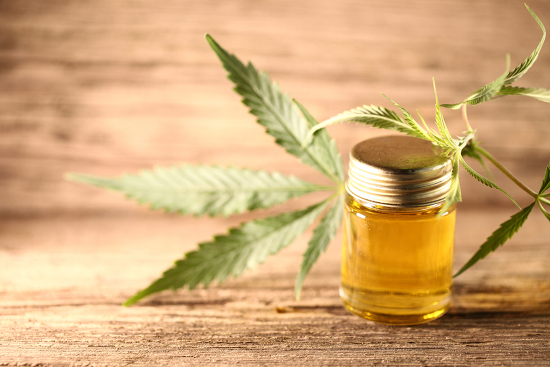
Cannabidiol (CBD) creates a buzz in different markets, as many individuals claim it to be an effective health & wellness chemical compound. Still, concrete scientific results about CBD studies are relatively few at the time of writing. The reason behind this difficulty might be because of the strict laws placed on cannabis and marijuana.
Continue reading to know more about CBD, its benefits, and how it interacts with the body.
What is CBD?
Cannabis has several chemical compounds, which include CBD and its cousin tetrahydrocannabinol (THC). CBD is a naturally-occurring substance found in the cannabis plant. This compound has various applications to let users experience feelings of calm and relaxation. Also, it may not deliver psychoactive effects to users, unlike THC.
You may find significant amounts of THC in various recreational marijuana strains. Conversely, you might find more CBD content in medical cannabis.
CBD may provide more health benefits than THC. You may also find different CBD delivery methods so manufacturers can cater to various consumers. Now, you can find CBD in products like oils, tinctures, and gummies from sites such as https://tasteparadise.com/product-category/cbd-gummies/.
The health benefits may be in abundance regardless of the CBD consumption method you choose. Still, it’s best to buy CBD products with third-party lab results to minimize the risks of complications after use.
What are the Benefits of CBD?

As previously mentioned, CBD may offer several health benefits to its consumers. But, specific products may provide unique benefits that may not be present in other CBD forms. For example, CBD oil might be a more versatile option than consuming CBD gummies.
Other benefits of using CBD may include the following:
- 1. Pain Relief
Many individuals use CBD for its pain-relieving effects. The chemical substance interacts with specific physical functions like the immune system response. So, using CBD might help users in dealing with physical pain better than before.
- 1. Pain Relief
Many individuals use CBD for its pain-relieving effects. The chemical substance interacts with specific physical functions like the immune system response. So, using CBD might help users in dealing with physical pain better than before.
- 2. Skincare
You may also use CBD creams and oils to help improve your skin. The chemical nature of CBD may help prevent the skin’s sebaceous glands from secreting sebum in excess. Thus, CBD might aid in preventing acne breakouts.
- 3. Anxiety and Depression Reduction
Both anxiety and depression are mental health disorders that may leave adverse effects on a person’s overall well-being. CBD may interact with the brain’s receptors to produce more mood-regulating receptors to help improve these mental conditions.
Is CBD Safe for Pets?
Like human studies, there are no conclusive scientific data on CBD use for pets. The claims you may find coming from other individuals might be nothing more than anecdotal thoughts. Still, you might find CBD to be useful in treating specific ailments in animals.
For instance, using CBD oil for dogs may provide anti-nausea and cardiac benefits for canine companions. The product may also help in stimulating appetites in dogs and other animals.
Still, it’s crucial to consult veterinarians first before attempting to use CBD on your pets. Symptoms may surface because of incorrect doses and other issues. These adverse effects may include lowered blood pressures, drowsiness, and dry mouths.
How Does CBD Interact with the Body?
CBD is one of over 80 natural chemicals called cannabinoids found in cannabis. This compound binds indirectly to specific cell receptors in the brain. Once in contact, the brain signals the body to produce a flow of other chemicals to help provide various positive effects.
These receptors are CB1 and CB2, and they have distinct functions when they acquire the correct signal. The former interacts with specific organs like the heart, spleen, and glands. CB2, on the other hand, is in the cells and tissues of the immune system.
CBD works by helping the brain open the signals for health conditions like anxiety, stress, and pain perception. With the right signs in place, the bodies of CBD users may minimize the need to produce effects for inflammation and pain.
Also, CBD interacts with the body’s intricate network called the Endocannabinoid System (ECS). As per a 2005 study from the University of California, researchers state that CBD may help in regulating various body and mind functions including:
- ● Inflammation
- ● Sleep
- ● Appetite
- ● Stress
- ● Pain
The body’s ECS has naturally-made chemicals called endocannabinoids, which interact with cannabinoids. The transmitters work together with unique enzymes to help break cannabinoids down for the body to reap health benefits. These chemicals also help the brain signal channels to how the body should react to specific stimuli.
CBD consumption may also help reduce the effects of addictive disorders.
How Can CBD Help in Fighting Addiction?
A 2018 study from nature.com finds that CBD may prove useful in preventing relapses in addiction patients. Researchers from the study found that administering CBD once every 24 hours for seven days provided proponents with positive effects.
The test results found that the proponents acquired traits that made them deter to addictive behaviors. Furthermore, the subjects of this study found that they didn’t display addict-like characteristics even after three days since their last consumption of CBD.
So, CBD might help in fending off different types of addiction like:
- ● Alcohol
- ● Cigarettes
- ● Opioids
- ● Heroin
Supplementing addiction therapy with CBD may improve positive results for people suffering from addictive behaviors. CBD may also be useful in improving the symptoms associated with addictive habits like anxiety, depression, and other compulsive conducts.
Are There Risks Involved when Consuming CBD?
Since the scientific pieces of evidence of CBD are inconclusive, there might be risks involved when consuming the compound. For instance, high doses of CBD may negatively interact with other medications. Senior citizens who consume multiple medicines for the management and treatment of several health conditions might want to stay away from using CBD.
Health complications that may come from consuming CBD with other medicines include blood clots, excessive bleeding, or hemorrhage. Again, consult your doctor before using CBD to prevent these issues from happening.
CBD may present many wonders to the health and well-being of various consumers. However, many positive reports from the use of this chemical compound are anecdotal at best. Don’t forget to consult the right professionals for the proper dose and use of CBD to avoid health complications from surfacing.
